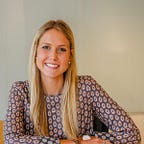When considering whether to apply to an accelerator or similar program, student teams are faced with a range of questions: Which program is best for me and my team? Is now the right time to apply? What do reviewers like to see in the application? What are my chances of getting in and what will increase them?
Submitting an application might seem like a daunting step on the pathway to launching a company. Luckily, we brought together four experts at our latest “Sketch” event, to discuss their take on the process. As each panelist opened with five minutes of their best advice, three unique themes emerged:
1. Not all Accelerators are Treated Equal:
Karen Murphy of Paypal Start Tank described various components that entrepreneurs might look for: shared office space, hands on mentoring, amount of equity, or length of program. She posited that it is essential for teams to discern what they are looking for, and do their homework on what the different programs offer. Major differences between Techstars and Y-Combinator include location, number of startups per class, office space, third party mentoring, amount of funding and equity per company, and program group versus startup team orientations.
2. Be Concise yet All-Encompassing, and Most Importantly, Be Confident:
Application reviewers have limited time. Brent Grinna of Evertrue asserted “you must be short and to the point.” Teams should be able to clearly state what you do, who they are, and what they would get out of the program in a couple of sentences. Merrill Lutsky of Posmetrics noted, “If you aren’t completely confident in your idea, you aren’t ready for an accelerator.” At the same time, teams should ensure that each individual is equally represented and positive attributes are highlighted adequately. Most programs are evaluating the team, and therefore single applicants might want to consider waiting until they are at a stage where more team members are involved. Have you worked together on projects in the past? If not, how can you know you’ll work together well? Are you all both willing and motivated to work on that idea together for the next 5+ years? Do you have 1-3 founders, with a clear CEO? These are some of the questions Lutsky posed for assembling the right startup team to join an accelerator.
3. A Word to Women Applicants:
Katie Rae of Techstars discussed the gender difference in accelerators, noting that there is a “great psychological difference between women and men in approaching applications”, which results in a smaller percentage of women applicants. She described that a few studies have shown women viewing the chances of getting into such program based on the evidence that 20% of applicants are accepted, while the other 80% majority do not, with a heavy emphasis on the later. In contrast to men view the 20% chance of acceptance as a point to entry, thinking “why not throw my application in the pool if I have even the slightest chance?” She asked that women founders understand this innate difference in perception and to think more like men when it comes to applications.
With these ideas in mind, an application can’t hurt. Airbnb founders Brian Chesky and Joe Gebbia pulled an all nighter to submit their application to Y-Combinator. Who knows where their company would be today without trying.
